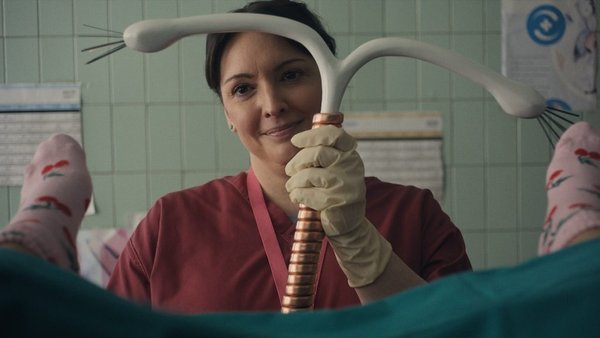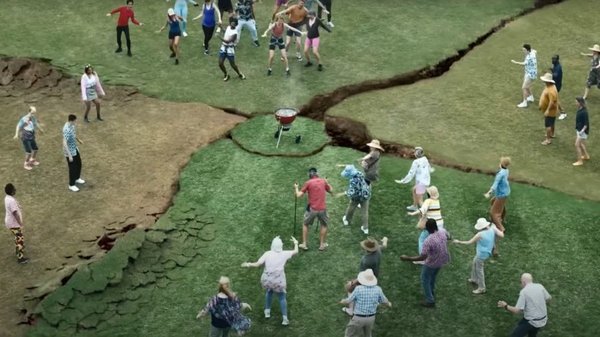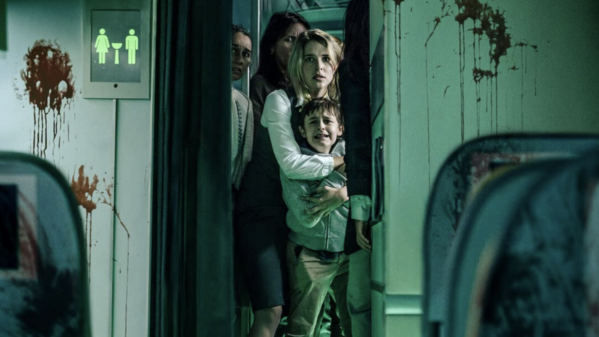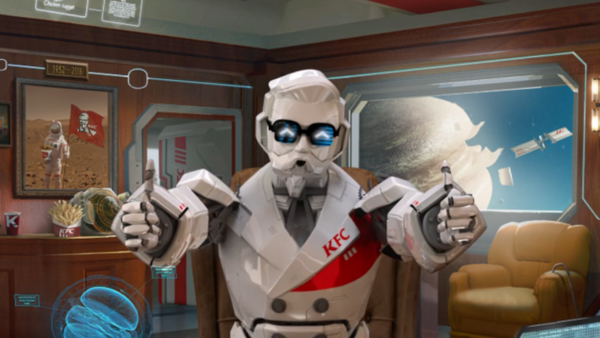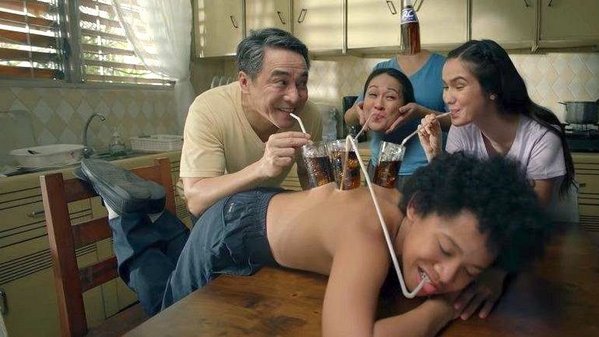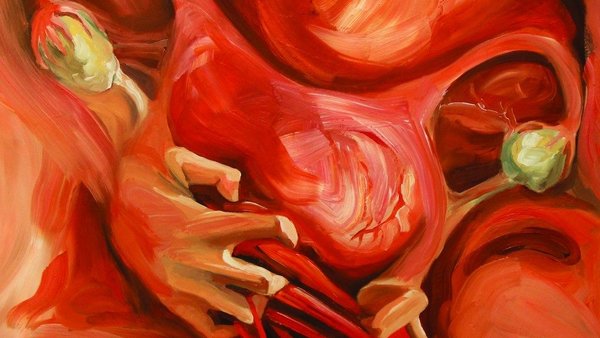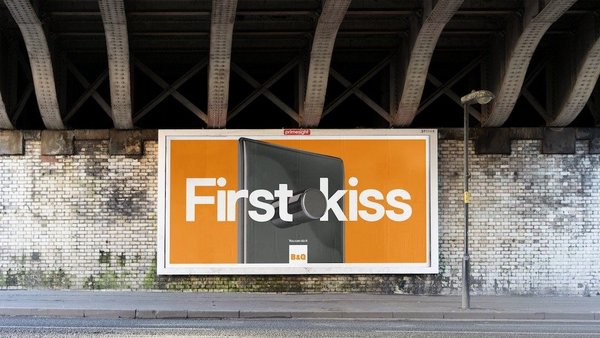Insight & strategy
A banjo among violins: the strategy behind KFC’s pandemic marketing /
Contagious interviews Mother ECD Hermeti Balarin about KFC's response to the pandemic and why the brand censored its world famous slogan in first ever global campaign
Contagious I/O
/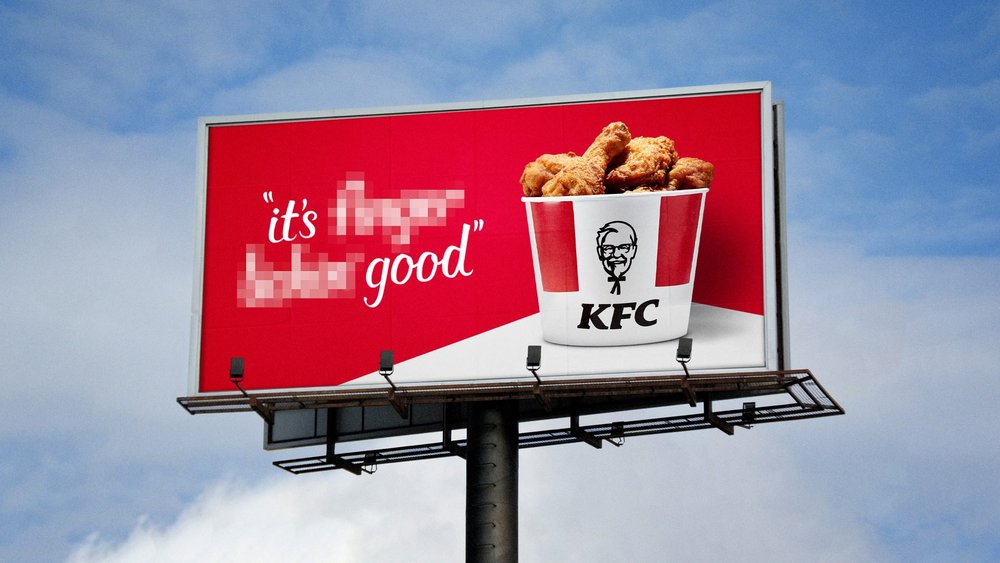
This article was first published on Contagious IQ, our online intelligence tool. To find out more click here
In August, KFC, the fast food chain famous for its fried chicken and provocative marketing communications, launched its first ever global campaign.
The brand began working with London-based creative agency Mother in 2017 and from their first campaign, broke category norms by featuring live chickens in their ad.
For years the brand had been trying to land the message that its chicken is prepared fresh in store every day, The Whole Chicken was what it took for the metrics on freshness, premium and preparation to start shifting.
True to form, the brand’s advertising throughout the Covid-19 crisis has remained punchy and entertaining. And, as the world collectively breathed a sigh of relief at the loosening restrictions, KFC launched Finger Lickin’ Good*. A multi-market campaign that temporarily censors part of the brand’s well-known slogan for the sake of public health.
We spoke to Hermeti Balarin, ECD at Mother London, about the role of brands during the pandemic, turning tactical messages into brand moments and the importance of running towards a problem.
Please give an overview of the brand and how it has evolved over the past few years.
We’ve been working with KFC for three and a bit years now. Then they had a real perception problem – their marketing was outdated and the brand was starting to gather a bit of dust in the UK. There has been very steady progress to shift their image.
We started with a loud bang at the beginning of the journey, then it started to gather pace and that gave confidence to everyone behind the brand. Everything from then on was intensifying this departure from the clichéd version that holds us back to modern, vibrant, cook from scratch, urban brand.
You haven’t had a smooth ride. How have the events of the past few years impacted your response to the Covid-19 crisis?
We were deeply trained in crisis before this pandemic, because we had one before. In the first year and a half we found a swagger, we found a voice for anything from launching new products to just communicating price, or freshness or anything. So we started to learn this language of how we speak.

And we continued to intensify the pace and that got us to this point here, the pandemic. So once again, we felt we know how we walk, how we talk, what we are about, the last thing we want to do is hide away. Let’s face it, and let’s go where everybody’s running from, because we know how to speak in those moments.
Hermeti Balarin, Mother
In February (before the pandemic hit its peak in the UK) KFC released the Finger Lickin’ Good campaign, but the ads were pulled in March after 163 people reported the spots to the UK’s Advertising Standards Authority saying they were inappropriate given the health crisis. Were there discussions with the client to keep it on air before the complaints hit?
To take the decision ahead of the time, to be overcautious, is really difficult – you just created something that everybody’s deeply in love with, that’s working, that is plastered all over the country – but we were recommending pulling it way before any complaints started to arrive.
It shows not just boldness to go and put really provocative work out, it is boldness to also take steps ahead of time as well.
If you don't act fast enough, today can be the difference between you being responsible and ahead of the game, to you being tone deaf.
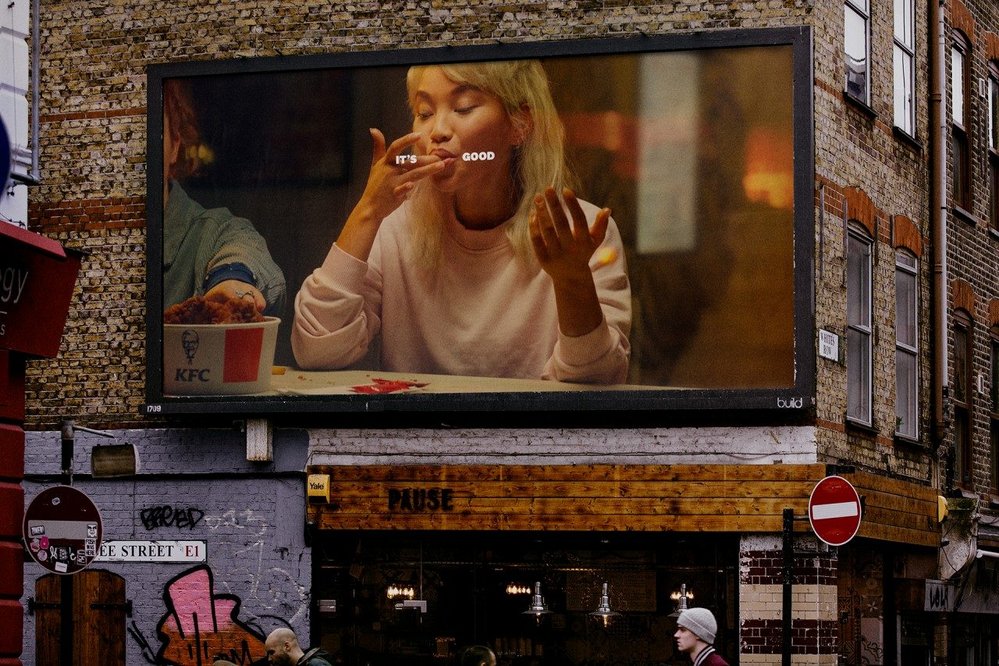
What were the learnings you took from that experience?
To be ahead of the mood. You are in a clairvoyant mode, but you’re just trying as hard as you possibly can with all the information that you have to not sit on your hands.
Another learning was we realised there’s not going to be a point in time where you learn everything about this. At the beginning you have to learn fast and constantly adapt your point of view. So, we launched a UK-wide ethnographic study of 21 households over 16 weeks, to dig deep and understand the nuance or the evolution of this crisis from a point of view of marketing and communication.
Hermeti Balarin, Mother
Once you decided to pause, what were the conversations around when you would restart?
What followed was a month and a half of protecting people. KFC had never been told to shut but they took the decision anyway. As an agency we paused the usual way of working and started to learn how to work from home.
People absorbed the initial shock and went into lockdown mode and a lot of brands went into quite a weird ‘we’re here for you’ mode, which felt quite cynical in lots of places. KFC never even contemplated going there.
But past that initial really gloomy moment in time, people started to crave a bit of lightness to balance out their day. There was no new entertainment being made, no sports, no going out, no seeing family, at that point people are starting to go, ‘Fucking hell, I really empathise with everyone that lost loved ones and everything that’s going on, but my mental health needs a breather.’ We started to feel like there had to be a role here for brands to play if you get it right. If you’re not insensitive, there will be a moment – quicker than we thought – that you can go out.
When did that first moment occur?
KFC’s in-house social media team started to jump on a trend, which happened very early on, which was people trying to recreate KFC at home. Which was amazing because you see that people are missing the simple things in life.
[KFC’s in-house social media team] launched #RateMyKFC to fuel that trend. They had 13,000 submissions. People were going as far as recreating packaging, drawing Colonel Sanders logos on fries bags and buckets.
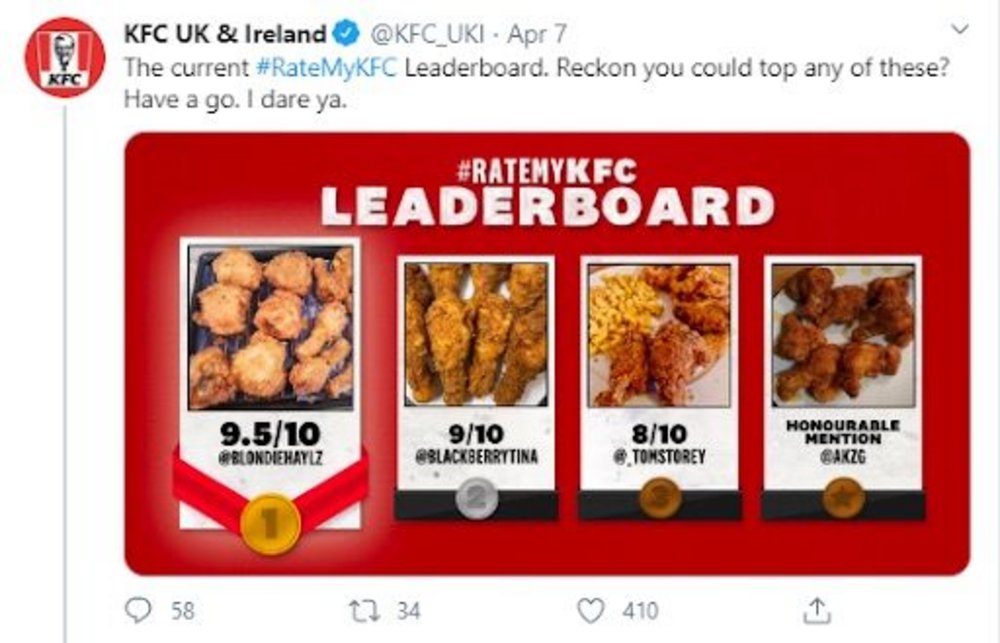
Then we created another campaign with them. It was an influencer-based campaign on Instagram Stories called KFC Clash with two sets of influencers going head to head with their own unique take on KFC. We had three or four weeks of that live on InstagramTV and then rebroadcast on Instagram Stories.
What did you learn from those forays into communicating during the pandemic?
Through those two things we learned that people were craving KFC and they’re up for a well-intended, good natured joke. Then we got a bit of a glimpse ahead because Mother Shanghai sent us some stats that fast food as they reopened in Shanghai was ranking third as the thing that people flocked to the most after lockdown lifted.
Hermeti Balarin, Mother
Was all your work during the pandemic proactive, or were you being briefed?
At that time, there was a live brief. KFC had started briefing us on a few more tactical things, and one of them was, ‘We don't know when, but we’re going to go back into delivery first and we’re going to need to announce that.’ It was a very practical brief, but we said screw that, that’s not just a delivery moment, that’s also a big brand moment. People are craving these things. They’re missing us like crazy, so we're going to pay homage to their love.
And then all we said was ‘we missed you too, but we’ll take it from here’ and Celine Dion helped us land the heart of it.
We felt that we got the timing right: we announced delivery back, but we also showed our brand spirit when so many brands were choosing to be quiet or to uncharacteristically say that they ‘understand the unprecedented moment’. We felt like brands at that moment could thrive by being the entertainment that people were missing and it did pay off.
Where was the We’ll Take It From Here film shown?
They went for broke. With media budgets being slashed and everything it would be really easy to shrink back into hard working programmatic, but KFC fought tooth and nail to give stature to the campaign and put it on as many big prime-time TV spots as they could.
Do you think that commitment from the brand made a big impact?
The brand and the business is going through a really great period because KFC were much more tuned into the moment, they were faster back and they were faster back on TV. So it worked commercially, as well as a brand building exercise.
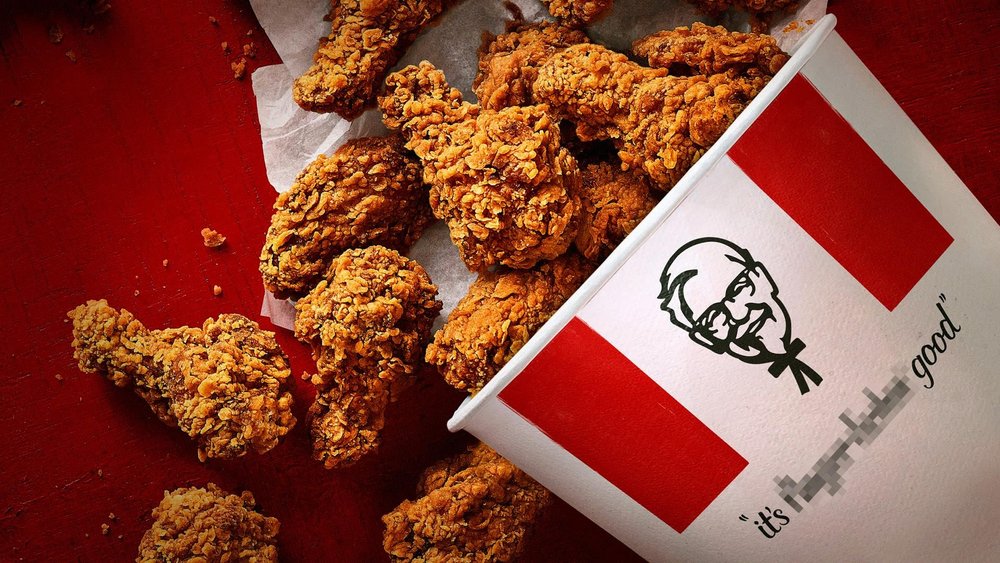
Which brings us to the latest campaign, It’s Finger Lickin’ Good*...
We got briefed on this a couple of months ago. This was quite an undertaking because they’ve never done anything global. But because we’re all in the same situation together, for the first time there is an insight uniting us all.
KFC’s global CMO organised a multi-market team of marketing representatives to come together and attempt to create a global campaign that was a response to the pandemic. A light-hearted, humorous, bold and emphatic way to put the brand on the map at a time like this. The UK work was an inspiration, so they briefed us to try and unite all of these markets and launch something to make a lot of noise and put a smile on the face of people across the globe. There was one part of the brief that was really awesome: the tonal guiding. It said, ‘When everybody else is bringing the violin, we're going to bring the banjo.’
Hermeti Balarin, Mother
What was your response to that brief?
All guns blazing. We thought KFC have so many amazing brand assets and one of them is the end line. We’ve been the victims of having to stop using it at the beginning of the pandemic, but we are not going to go down without a fight. This is our moment to think of this end line in a completely different way. I think 95% of the work we presented was, one way or another, to capitalise on this.
How did the client respond to that idea?
Being the bold client that they are, they latched on to the idea that was the boldest. It’s saying that one of the most famous slogans in the world is suddenly one of the most inappropriate, so let’s just own up to it. Let’s not use it until it is safe to do so again.
I think most brands would have looked at something like that and would have laughed, then moved on to something a little bit less provocative.
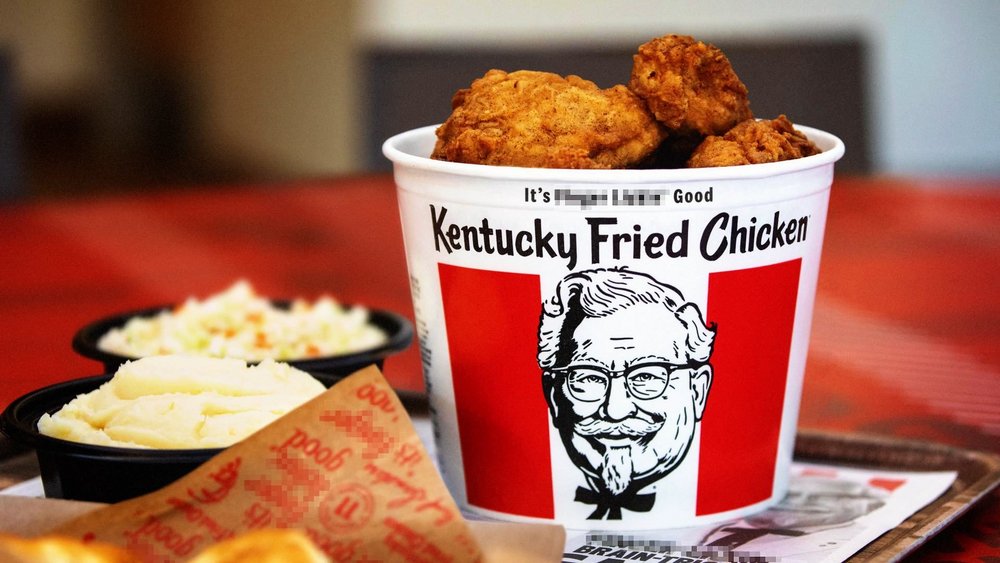
Were any of the markets more reserved in their response to take on the campaign?
I can’t quite believe it, but no. It’s unheard of. I’ve done global work for most of my career, and by nature it’s a complication because you’re trying to bring in a lot of people with different agendas, different local nuances, so it’s going to be hard. [But] in one way or another, all of these people pushed it every step of the way.
I’ve heard that the second phase will involve hunting for a temporary replacement for the slogan. Is that true?
Yeah, but it is still a bit under wraps. People are already replacing and having fun with it. It’s a public debate, as we’ve seen by the absurd levels of coverage on this. It would be silly of us not to continue to play.
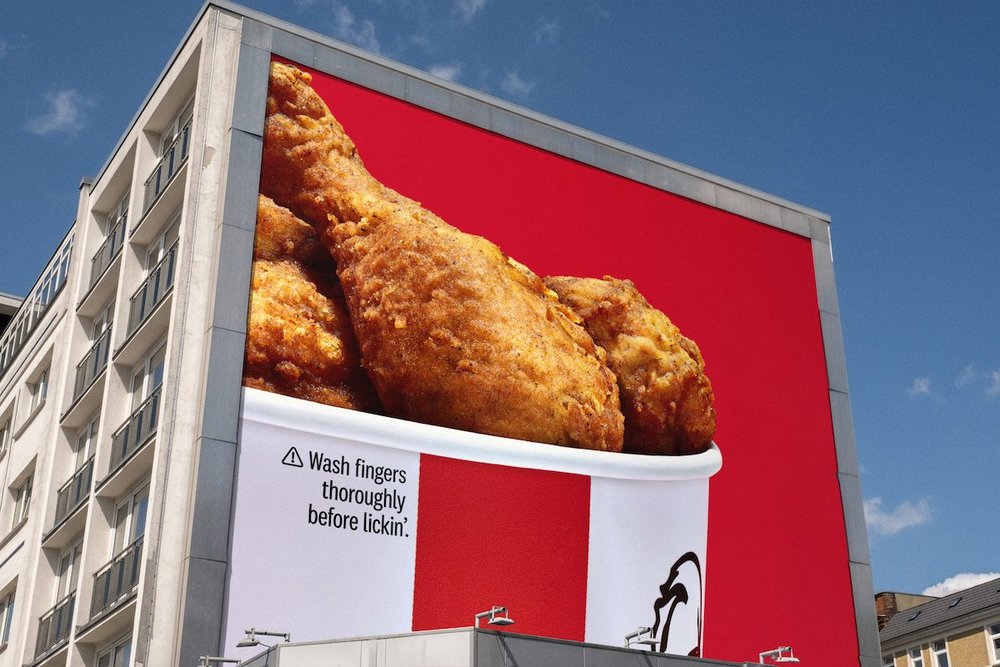
Could you tell me a little more about the media plan?
The poster sites that are booked in the UK, Canada and South Africa are as big as it gets. The TV launched as well across the best prime-time spots you can get. The press ad is long copy, it was in maybe 10 newspapers on Tuesday [25 August 2020].
The media is crazy, because the business started to do well again, there’s a bit more budget. Right now, KFC spending on the initial phase of this is more than they would have spent on a top campaign.
Do you have any early results you can share?
I don’t know if we can so quickly attribute it to the campaign yet, but this morning the sales were insane. Hopefully we had something to do with that.
But this was always going to be judged as a fame, PR moment. It was orchestrated to be launched at the same moment in time across every market to be picked up in consumer media. I can’t think of any kind of publication right now that hasn’t run the story in the UK. We see a lot in America and Australia, it ended up on a lot of morning shows on TV.
It has been quite successful already and it’s mostly positive sentiment as well, people see the joke and are engaging with it.
Hermeti Balarin, Mother
What would you say is your single greatest learning from this campaign?
Speak when others choose to be quiet because you have less of a fight to reach your audience and gain share voice. When everybody else runs away from a problem, just walk straight into it, and just learn how to do it.
And what would be your main piece of advice to other marketers advertising during a crisis?
Be true to your brand, be consistent. Learn where it flexes to adapt to the moment but be true to your brand. Don’t try to become something else, that’s the worst you can do.
Every brand will have their DNA and how they speak, just find that and you’ll be surprised that you can appear in almost any situation, as long as it’s seen to be true to who you are. And then I think people will actually welcome you speaking at difficult moments.
Want to create better, braver work? Join us at Most Contagious USA on 27 Jan where we’ll distil a year’s worth of advertising campaigns, insights and trends into a day of inspirational talks. Click here for the line-up and tickets.
Want more of the same? /
We don’t just write about best-in-class campaigns, interviews and trends. Our Members also receive access to briefings, online training, webinars, live events and much more.
